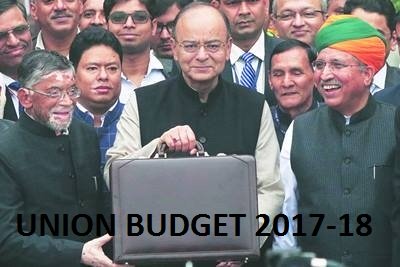
The healthcare sector is looking forward to Budget 2017 in a big way as various players have sought sops so as to make healthcare affordable to the last man in India. Noted health body Population Foundation of India (PFI) said that India’s spend on healthcare is much lower than some fellow BRICS and SAARC nations. With GST to be implemented later this year, the healthcare sector wants certain concessions from Finance Minister Arun Jaitley. We take a look at some of the key demands.
Accord national priority status to health sector: India continues to rank low on many of the basic health indicators and compares “unfavourably” even with its economic peers. According a ‘priority sector’ status to health care will help in the process of enabling development of innovative long term financing structures for health care providers apart from creating an attractive environment for domestic production of medical equipment, devices and consumables while also catalysing research and development. This will channelise funds from the banking sector to creating necessary health care infrastructure and meet societal objectives of the government.
Set up a health infrastructure fund: Access to funding by creating a specific fund for health care infrastructure and innovation would facilitate access to capital for the industry. These funds would encourage entrepreneurship and newer business models which are the need of the hour for improving access, availability and quality, especially in Tier 2, Tier 3 and rural areas. The government can think of providing seed capital for such a fund. Though health care was included in the harmonised master List of Infrastructure sub-sectors by the Reserve Bank of India in 2012, long term financing options are still not available for health care providers.
Make health insurance coverage mandatory: Government should explore making health insurance coverage mandatory for all citizens in a phased manner initially covering the organised sector. Apart from enabling universal access to health care, the mandatory health insurance coverage would also meet the urgent need for augmenting health care capacity creation in the country.
Raise tax exemption on preventive health check-up: FM Jaitley in the forthcoming Union Budget 2017-18 should also raise tax exemption on preventive health check-up. Various players in the sector have pressed for raising the tax exemption on preventive health check-up under section 80D of the Income Tax Act, 1961, to Rs 20,000, from current value of Rs 5,000, in order to achieve the aim of universal healthcare coverage.
Increase quantum of deduction towards payment of medical insurance premium: There is a need to increase quantum of deduction towards payment of medical insurance premium. The present annual deduction limit of Rs 15,000 needs to be enhanced to Rs 50,000 for self and family and the current annual limit of Rs 20,000 in respect of dependent parents needs to be enhanced to Rs 50,000. Additionally, the GST exemption should cover the health insurance premium, as it is exempted from the service tax at present.
Increase depreciation rate on medical devices: The other pre-Budget demand with regard to the healthcare sector includes increasing the depreciation rate on medical devices, equipment from 15% to 30%. Create healthcare systems based on technology: Government should support initiatives which work towards creating healthcare systems based on technology. There is a need to go beyond market-driven opportunities to tackle the emerging threats including chronic diseases by using a multi-pronged preventative strategy. Given the significance and uptake of technology across all sectors and considering the digital and technology enabled push by the government, it is imperative that the focus this year should be to expand the paradigm of technology in healthcare. Steps need to be taken to ensure growth of evidence-based Health and Government should support initiatives working towards creating a better healthcare system using technology.
Use multi-pronged preventative strategy: It said that there is a need to go beyond market-driven opportunities to tackle the emerging threats and chronic diseases by using a multi-pronged preventative strategy. It could be done by tackling the risk factors like smoking, alcoholism and tobacco, sedentary lifestyle and health consequences of climate change. This can involve tax breaks and sops on proven, evidence-based approaches to tackle risks like promoting healthy foods, creatively designed workstations in offices, getting preventive health checks, and more taxes on sugary drinks, cigarettes, etc.
Encourage healthcare facilities in tier II, III and IV cities: The need of healthcare facilities in midsized and smaller cities could be met by revising the corporate income tax incentives, which are currently given on capital expenditure for hospitals having 100 beds and above. This incentive needs to be extended to greenfield hospitals with 50 beds, thereby encouraging the healthcare facilities in tier II, III and IV cities.
In addition, medical innovation fund and healthcare innovation fund should be set up in order to encourage new business models and entrepreneurship in healthcare sector.
Increase investments in health and family planning: Between 2015-16 and 2016-17, the government’s allocations for Health Ministry increased by 13% but the share of National Health Mission in the Ministry’s budget declined to 48%. Trends in budget allocations indicate that percentage share to family planning has remained unchanged between 2013-14 and 2016-17 at 2% of the total Health Ministry’s budget. Investing in health is critical for achieving the economic development goals.
The health sector, which drives domestic demand for health care, has the potential of providing new jobs. The lack of skilled workforce is stark in the health sector. Increased investment will also bring down the prices of health services and assist in sustaining the medium term inflation target of 4%. Adequate and proportionate resources invested (in health and specifically family planning) in the upcoming budget announcement will bear positive dividends for the country’s future.